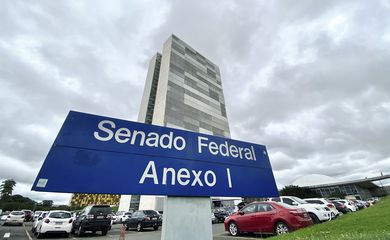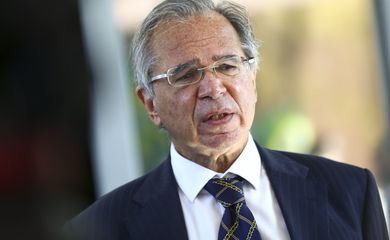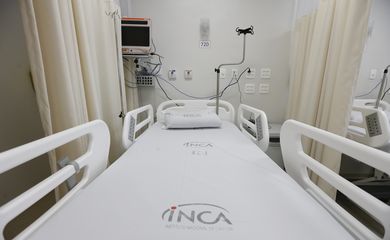Senate CCJ will have tax reform at the first meeting of 2022

The president of the Constitution and Justice Committee (CCJ) of the Senate, Davi Alcolumbre (DEM-AP), assumed, today (15), in the last meeting before the parliamentary recess, the commitment to set the agenda for the first meeting of the collegiate in 2022, the Proposal for Amendment to the Constitution (PEC) 110/2019, which deals with tax reform. The rapporteur at the CCJ is senator Roberto Rocha (PSDB-MA).
Alcolumbre recalled that senators have the right to request a view, but said that he will urgently forward the text to the House's plenary.
The expectation is that the matter will be ready for deliberation by the 81 senators in February. “I assume the public commitment with the CCJ that, when the work returns, we will read and vote on the matter, and we have the commitment of the president [of the Senate] Rodrigo Pacheco [PSD-MG] that he will take the proposal to the plenary. from the vote in the CCJ”, he stated.
Among other points, Rocha's opinion provides for the “unification of the consumption tax base”, with the creation of a dual value-added tax (VAT). Under the proposal, the country will have a VAT for the Union, with the unification of the Tax on Industrialized Products (IPI), the Social Integration Program (PIS) and the Contribution to Social Security Financing (Cofins), called Contribution on Goods and Services (CBS); and a VAT for states and municipalities, unifying taxes on Circulation of Goods and Services (ICMS) and on Services (ISS), with the name of Tax on Goods and Services (IBS).

bone marrow
Also at today's meeting, the CCJ approved a bill that facilitates the location of bone marrow donors who have not been found by consulting the contact details stored in the National Registry of Bone Marrow Donors (Redome). Bill (PL) 3.523/2019 goes to the Social Affairs Commission (CAS).
For Alcolumbre, the approval of the proposal is a way of paying homage to the author of the text, senator Major Olímpio (PSL-SP), who died in March, aged 58, a victim of covid-19 . "I want to make this memory and this tribute to senator Major Olímpio, who was a dear friend, with firm positions, fearless, courageous, who unfortunately left us, left this House, left Brazil, left the representation of the State of São Paulo."
The project's rapporteur, Chiquinho Feitosa (DEM-CE), suggested that, if approved, the rule be named the Cristiana Lôbo Law, in tribute to the journalist who died in November, a victim of a type of spinal cancer. "At this point, I would like to recall the example of the brilliant journalist Cristiana Lôbo, recently deceased, herself the victim of a disease treatable with a bone marrow transplant."
According to Feitosa, the future law will also be a way of supporting the thousands of Brazilians awaiting treatment. "This law will certainly help to shorten the search time for compatible donors."
Donors
According to the proposal under discussion, voluntary donors must provide Redome with the necessary data for its location. Blood centers and registry managers may also request information about the donor from public administration bodies to expedite transplants, when the attempt to locate him through the data registered in the Redome is fruitless or unfeasible.
The request may also be sent directly to companies providing public services and to credit protection database managers. The text also allows Redome managers or blood centers to obtain the names and registration data of the donor's relatives, in order to try to locate the volunteer.
“It is estimated that the probability of finding a bone marrow donor compatible with the recipient, among unrelated people, reaches 1 in every 100,000, which is why, once a possible donor has been identified, it is essential to locate him. The present proposal, by providing blood centers and Redome managers with all possible alternatives for locating donors, will certainly contribute decisively to the protection of the right to life” said the rapporteur.
Between the 14th and 21st of December, the National Mobilization Week for Bone Marrow Donation is celebrated. The objective of the action is to promote clarification and awareness about marrow donation and transplantation, as well as attracting donors. The week was established by Law 11.930/2009.
Text translated using artificial intelligence.




